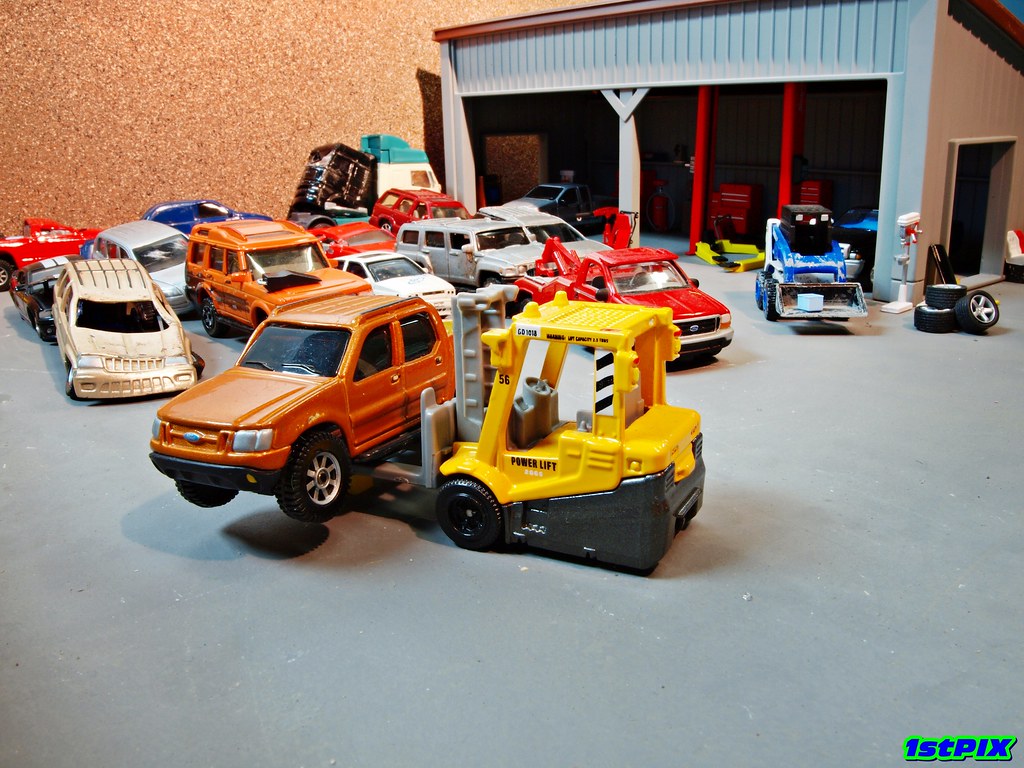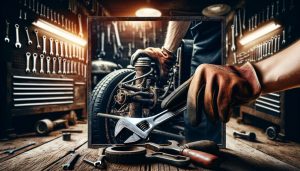What are salvage car auctions?
Salvage car auctions are events where damaged or totaled vehicles are sold to the highest bidder. These auctions provide an opportunity for buyers to purchase vehicles at a significantly lower price compared to their market value. Salvage car auctions are often frequented by car enthusiasts, mechanics, and individuals looking for affordable transportation options. The vehicles sold at these auctions may have been involved in accidents, floods, or other incidents that deemed them as salvage. It is important for buyers to carefully inspect the vehicles before bidding to ensure they are aware of any potential repairs or issues. Overall, salvage car auctions offer a unique chance to acquire vehicles that may require some work but can be a cost-effective option for those willing to put in the effort.
Why are salvage car auctions popular?
Salvage car auctions have gained immense popularity in recent years due to several reasons. Firstly, these auctions offer a unique opportunity for car enthusiasts and bargain hunters to acquire vehicles at significantly lower prices compared to traditional car dealerships. This affordability factor attracts a wide range of buyers, from individuals looking for affordable transportation options to those interested in restoring and reselling salvage cars for profit. Additionally, salvage car auctions provide access to a diverse selection of vehicles, including luxury cars, sports cars, and classic cars, which may not be readily available in the traditional market. Furthermore, these auctions offer a thrilling and competitive atmosphere, as bidders compete to secure their desired vehicles. Overall, the combination of affordability, variety, and excitement makes salvage car auctions a popular choice for car buyers and enthusiasts alike.
Benefits of attending salvage car auctions
Attending salvage car auctions offers a range of benefits for car enthusiasts and bargain hunters alike. One of the main advantages is the opportunity to find unique and rare vehicles at significantly discounted prices. Salvage car auctions often feature vehicles that have been damaged or deemed as total losses by insurance companies, making them ideal for those looking for project cars or spare parts. Additionally, attending these auctions allows buyers to bypass traditional car dealerships and negotiate directly with sellers, potentially saving even more money. Moreover, salvage car auctions provide a thrilling and competitive atmosphere, where bidders can test their skills and strategies against others. Overall, for individuals interested in finding affordable and one-of-a-kind vehicles, attending salvage car auctions is a worthwhile endeavor.
How salvage car auctions work
Registration and bidding process
The registration and bidding process at salvage car auctions is a crucial step for buyers looking to acquire vehicles. To participate in these auctions, potential buyers must first register with the auction house. This typically involves providing personal information and agreeing to the auction’s terms and conditions. Once registered, buyers can then begin the bidding process. Bids are placed on vehicles of interest, with the highest bid at the end of the auction period winning the vehicle. It is important for buyers to carefully research and inspect the vehicles before placing bids to ensure they are making informed decisions. Additionally, buyers should set a budget and stick to it to avoid overspending. Overall, the registration and bidding process is an essential part of salvage car auctions, allowing buyers to compete for and acquire vehicles that meet their specific needs and preferences.
Types of salvage cars available
When it comes to salvage car auctions, there are various types of vehicles available for bidding. These include collision-damaged cars, flood-damaged cars, theft-recovered cars, and fire-damaged cars. Each type of salvage car comes with its own set of challenges and potential repairs. Collision-damaged cars may require extensive bodywork, while flood-damaged cars may have electrical issues. Theft-recovered cars may have missing parts or damage from the theft incident. Fire-damaged cars may have significant damage to the engine and interior. Understanding the different types of salvage cars available is crucial for buyers to make informed decisions and assess the potential costs of repairs and restoration.
Factors to consider before bidding
Before participating in salvage car auctions, there are several factors that you should consider. Firstly, it is important to thoroughly inspect the vehicle before placing a bid. Salvage cars often have significant damage, and it is crucial to assess the extent of the repairs needed. Additionally, you should research the market value of similar vehicles to ensure that you are making an informed decision. Another factor to consider is the availability of spare parts and the cost of repairs. Some salvage cars may require rare or expensive parts, which can significantly impact the overall cost. Lastly, it is essential to set a budget and stick to it. It can be tempting to get caught up in the excitement of bidding, but it is important to have a clear budget in mind to avoid overspending. By considering these factors, you can make a more informed decision when participatingin salvage car auctions.
Tips for attending salvage car auctions
Research the auction house
Researching the auction house is a crucial step before participating in salvage car auctions. It is important to gather information about the auction house’s reputation, policies, and procedures. This includes understanding how they source their salvage cars, how they determine the condition of the vehicles, and what types of auctions they offer. Additionally, it is advisable to read reviews and seek recommendations from other buyers who have previously dealt with the auction house. By conducting thorough research, potential buyers can make informed decisions and increase their chances of finding the best salvage car deals.
Inspect the vehicles thoroughly
When it comes to salvage car auctions, one of the most important steps is to inspect the vehicles thoroughly. This step cannot be emphasized enough, as it is crucial in determining the true condition of the cars up for auction. Inspecting the vehicles thoroughly allows potential buyers to identify any hidden damages or issues that may not be apparent at first glance. It is recommended to bring along a trusted mechanic or car expert who can provide valuable insights and help assess the overall condition of the vehicles. By conducting a thorough inspection, buyers can make informed decisions and avoid any potential surprises or costly repairs down the line.
Set a budget and stick to it
Setting a budget is crucial when participating in salvage car auctions. It is easy to get caught up in the excitement and bidding wars, but without a budget, you may end up overspending or buying a vehicle that requires more repairs than you can afford. Before attending an auction, take the time to assess your financial situation and determine how much you are willing to spend. Once you have set a budget, it is important to stick to it. This will help you make informed decisions and avoid any financial strain. Remember, the goal is to find a salvage car that fits within your budget and has the potential to be restored or used for parts.
Risks and challenges of salvage car auctions

Hidden damages and repair costs
Hidden damages and repair costs are a significant concern when it comes to salvage car auctions. While these vehicles may appear to be in good condition at first glance, there could be underlying issues that are not immediately visible. From structural damage to mechanical problems, buyers need to be aware of the potential costs involved in repairing these vehicles. Additionally, hidden damages can impact the safety and reliability of the car, making it crucial for buyers to thoroughly inspect and assess the condition of the salvage car before making a purchase. It is important to consider the potential repair costs and factor them into the overall value of the vehicle to make an informed decision.
Title and ownership issues
Title and ownership issues are crucial aspects to consider when participating in salvage car auctions. Before bidding on a vehicle, it is important to thoroughly research and understand the title status of the car. Salvage vehicles may have various title designations such as salvage, rebuilt, or salvageable. Each designation comes with its own set of implications and potential restrictions. Additionally, potential buyers should also be aware of any ownership issues that may arise, such as liens or outstanding loans on the vehicle. Conducting a comprehensive title and ownership check can help ensure a smooth and hassle-free experience when purchasing a salvage car at auction.
Limited warranty and return policies
Limited warranty and return policies play a crucial role in salvage car auctions. As potential buyers, it is important to understand the terms and conditions surrounding these policies. A limited warranty provides a certain level of assurance that the vehicle is in working condition and will perform as expected. However, it is important to note that salvage cars are sold as-is, meaning they may have significant damage or mechanical issues. Return policies also vary among auction houses, so it is essential to carefully review the terms before making a purchase. Some auctions may offer a limited window for returns or exchanges, while others may have no return policy at all. Therefore, it is crucial to thoroughly inspect the vehicle, ask questions, and consider the risks before participating in a salvage car auction
Success stories from salvage car auctions
Finding rare and valuable cars
Finding rare and valuable cars is an exhilarating experience in the world of salvage car auctions. These auctions offer a unique opportunity to uncover hidden gems and uncover the stories behind each vehicle. Whether it’s a classic vintage car or a rare luxury vehicle, the thrill of discovering these treasures is unmatched. With meticulous research and a keen eye, collectors and enthusiasts can navigate through the vast selection of salvage cars to find their dream car. From rare models to limited editions, salvage car auctions provide a platform for car enthusiasts to indulge in their passion and acquire one-of-a-kind vehicles. The hunt for rare and valuable cars in salvage car auctions is not only about the monetary value but also the excitement of unearthing a piece of automotive history.
Flipping salvage cars for profit
Flipping salvage cars for profit has become a lucrative business for many car enthusiasts. With the rise of online salvage car auctions, individuals can now easily buy damaged vehicles at a fraction of their market value and then repair and resell them for a substantial profit. This practice requires a keen eye for identifying salvageable cars, as well as the necessary skills and resources to restore them to their former glory. Despite the challenges and risks involved, the potential rewards make flipping salvage cars an enticing venture for those with a passion for cars and a knack for business.
Rebuilding and restoring salvage cars
Rebuilding and restoring salvage cars is a fascinating process that requires skill, patience, and attention to detail. Salvage car auctions provide a unique opportunity for car enthusiasts and professionals to acquire vehicles that have been damaged or deemed as total losses by insurance companies. These auctions offer a behind-the-scenes look into the world of salvage car restoration, where dedicated individuals work tirelessly to bring these vehicles back to life. From sourcing the necessary parts to meticulously repairing and repainting the damaged areas, every step of the rebuilding process is crucial to ensure the car’s safety and functionality. The end result is a beautifully restored salvage car that not only looks as good as new but also provides a second chance for a vehicle that might have otherwise been destined for the scrapyard.
Conclusion
Summary of salvage car auctions
Salvage car auctions offer a fascinating glimpse into the world of damaged vehicles and the process of selling them. These auctions provide an opportunity for buyers to purchase cars at significantly lower prices than their market value. The summary of salvage car auctions highlights the key aspects of these events, including the types of vehicles available, the bidding process, and the potential risks and rewards of participating. Understanding the ins and outs of salvage car auctions is essential for anyone interested in buying or selling damaged vehicles.
Final thoughts and recommendations
In conclusion, salvage car auctions offer a fascinating glimpse into the world of automotive salvage and restoration. The behind-the-scenes process of these auctions is both intriguing and complex, with a wide variety of vehicles and bidders participating in the bidding process. Whether you are a car enthusiast looking for a project or a professional in the automotive industry, salvage car auctions can be a valuable resource. However, it is important to approach these auctions with caution and do thorough research before making any purchases. Understanding the vehicle’s condition, history, and potential repair costs is crucial to making an informed decision. Additionally, it is recommended to attend auctions in person whenever possible to inspect the vehicles firsthand. With the right knowledge and preparation, salvage car auctions can provide exciting opportunities for car enthusiasts and professionals alike.
Future trends in salvage car auctions
The future of salvage car auctions is expected to be influenced by several key trends. One of the major trends is the increasing demand for electric and hybrid vehicles. As more people become conscious of the environmental impact of traditional gasoline-powered cars, the demand for salvage electric and hybrid vehicles is likely to rise. Another trend is the integration of advanced technology in the auction process. Online platforms and mobile apps are already transforming the way salvage car auctions are conducted, making it easier for buyers to participate and bid on vehicles from anywhere in the world. Additionally, there is a growing focus on sustainability and recycling in the salvage car industry. Auction houses are exploring ways to reduce waste and maximize the reuse of salvageable parts and materials. These trends are expected to shape the future of salvage car auctions, creating new opportunities and challenges for buyers and sellers alike.










